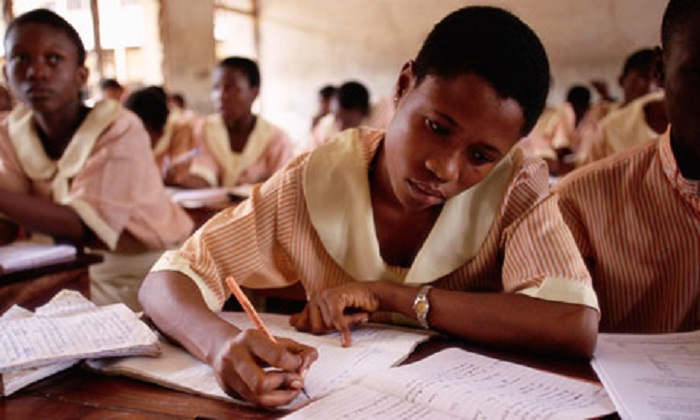46, 164 out of 70, 580 pupils fail Common Entrance Exam
65.4 percent of pupils that sat for this year’s Common Entrance Examination into the federal government’s unity schools failed, an analysis of the results released by the National Examinations Council has shown. Only 34.6 percent of those that sat for the examination passed. Emirs worry over girl-child education record in 5 northern states COVID-19 has […]

65.4 percent of pupils that sat for this year’s Common Entrance Examination into the federal government’s unity schools failed, an analysis of the results released by the National Examinations Council has shown.
Only 34.6 percent of those that sat for the examination passed.
- Emirs worry over girl-child education record in 5 northern states
- COVID-19 has magnified educational inequity in Nigeria – Osinbajo
Some parents and pupils, who spoke to Daily Trust, attributed the failure to the COVID-19 pandemic which forced pupils and students to remain at home for months.
The students competed to gain admission into the 110 unity schools nationwide.
The entrance examination which took place on October 17 had in registration, 92,591 with 70, 580 sitting for the examination and 16, 713 absent due to the #Endsars protest.
Presenting the results on Monday in Abuja to the Minister of Education, Adamu Adamu, NECO Acting Registrar, Godswill Obioma, said the examination went smoothly.
In his presentation, the minister said a total of 70,580 candidates sat for the examination out of which 24,416 candidates passed, scoring a minimum of 66, adding that the national merit cut-off mark was 142.
Adamu said the overall best student was Umeonyiagu Chinua Crucifixio from Anambra State with a score of 199 out of 200, 2nd best student, Onwuamanam Udochukwu from Imo State with 198; and 3rd best, Salaam Mariam Aderemilekun from Ogun State with 197.
He said a total carrying capacity of unity colleges now stands at 26, 625, having added 720 slots with the establishment of six more Federal Science and Technical colleges across the six geopolitical zones.
 Why performance was poor – Pupils
Why performance was poor – Pupils
Pupils who spoke to Daily Trust blamed poor preparation occasioned by the COVID-19 pandemic for the poor performance.
A primary 6 pupil of Model Primary School, Obeama in Oyigbo Local Government Area of Rivers State, John Okorie, said many pupils were not able to prepare for the examination.
Another pupil of Town School Primary School, Lotanna Chidubem, cited a similar factor.
Experts speak
An educationist, Yussuf Oriyomi, said basically, the coronavirus break affected the preparation of the learners and a lot of them did not have access to online learning.
He also cited the way the examination body fixed its pass mark, saying, it was not modulated like other examinations where the answer could be A, B, or C.
On the implication for the nation’s education sector, he said” “You cannot build something on nothing; the foundation is very crucial. So, if people who are trying to get into secondary schools are struggling to pass the examination, I am afraid that is not too good.”
Oriyomi said the way forward would be that the various schools they were going to be admitted should put in extra efforts and enrichment programmes, introduce additional classes to “ensure that they are able to brush them up to level up.”
Another educationist, Olasunkanmi Opeifa, said: “When learning was not taking place, many pupils did not have access to formal education and parents got tired at a point because they did not know the lockdown would take long and they didn’t get teachers to engage their wards at home.
“Having a mass failure at the basic level is scary but a lot can still be done. It’s not that the students are failing 100 percent and it could also mean we should check if we are testing what we’re supposed to test; that may have contributed to the failure.”
Opeifa urged stakeholders to give children proper basic education by providing the necessary facilities, employing experienced and qualified teachers who could go the extra mile.
Parents should not abdicate the responsibility of their children’s education to the teachers alone; they should take responsibilities by monitoring their wards at home and ensuring they do the needful.
A parent, Victoria Julius, said the reason for the failure was so glaring and no one should blame the pupils.
“A lot of them never had the opportunity to attend online classes during the lockdown nor have access to private tutors, and government opened schools and did not allow them to learn for a while before the examination,” she said.
According to him, government should pay more attention to government schools and teachers so that the pupils could get the best.
“It is to be noted that the pupils who failed to meet up with the cut-off mark can also get admission into other secondary schools be it government or private, as the said cut-off mark is only applicable to pupils who seek admissions into Federal Government colleges,” he added.
